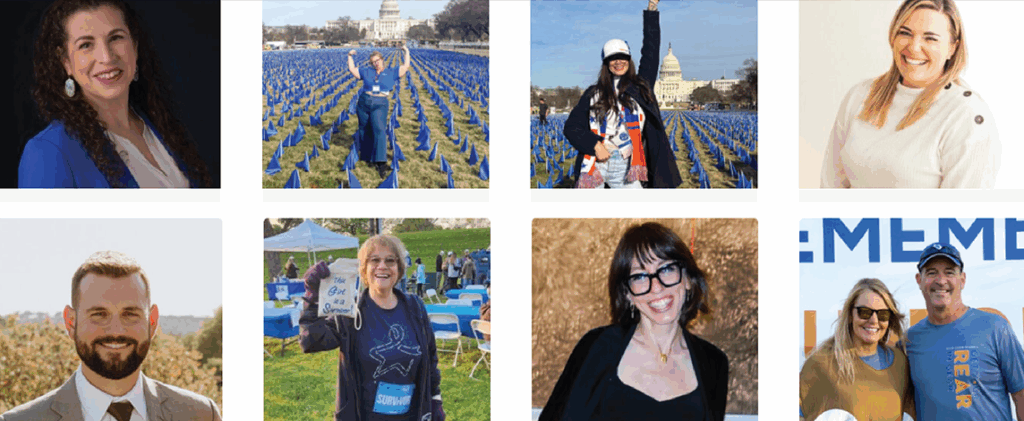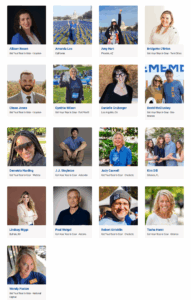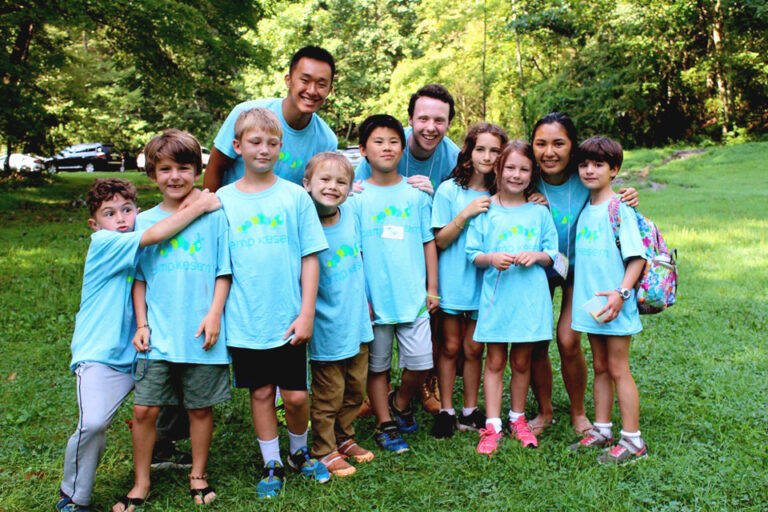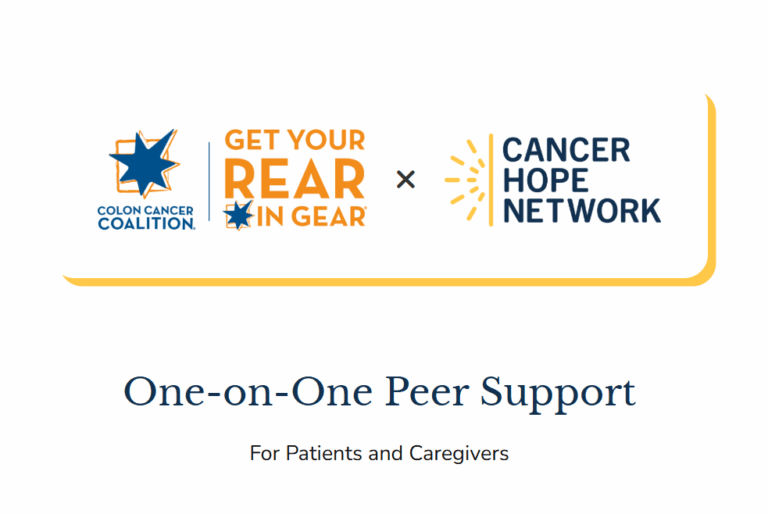
Our Survivorship Council is comprised of 17 impactful and dedicated individuals who are colorectal cancer survivors and patients currently undergoing treatment for colorectal cancer.
Not only do they guide us to better help patients and survivors with their unique perspectives through their lived experiences, they’re also our Coalition family. Each person has a lifetime of lived experiences and hard-earned knowledge to share with others, which is why their voice is infused in all that we do!
Why is the Survivorship Council important, and why participate in it?
“From my experience,” shares Judy Caswell, a stage III survivor, “I learned a lot! Firstly, this is a disease that is impacting young people, and unfortunately, I found many didn’t have the resources, options, or respond the way I did. I feel strongly about educating others, getting access to screenings, and sharing knowledge so [people] can be their own advocate!”
Robert Stricklin, also a stage III survivor, shares that “We all have a story to tell,” and he believes that “sharing my story just might help someone else or possibly even save their life!”
Bringing awareness to colorectal cancer, its symptoms, and screening options is one of the most impactful ways that each and every one of us can combat this terrible disease. With knowledge comes power, and it’s through our own advocacy for our health and wellbeing that we can show ourselves the greatest love.
“I was 35 when I was diagnosed with colon cancer,” shares Danielle Gruberger. “For 8 years, I was told that symptoms of blood in my stool, bloating, and severe fatigue were likely IBS or anxiety-related. I was young and ‘healthy looking’ with no family history of cancer, so it was not even a consideration. I want to help other young adults recognize the signs sooner, speak louder, and feel less alone in the process.”
Amy Hart was just 34 when she was diagnosed with stage III, and learned that she has Lynch Syndrome. “Today, I am cancer-free, and I aim to raise awareness about early detection, self-advocacy, and the importance of genetic testing, especially for those with a familial cancer history. By sharing my story and being a part of the council, I hope to empower others to seek the care they need and to show that life after cancer can still be fulfilling. My goal is to offer hope, education, and support to those impacted by cancer and genetic mutations, emphasizing that survival is about resilience and embracing life after diagnosis.”
J.J. Singleton also learned of his Lynch Syndrome diagnosis the hard way and has been battling colorectal cancer since 2015, when he was just 27 years old. He’s still undergoing treatment and has completed over 160 rounds of chemotherapy. “[I want] to help bring my own views and experiences of survivorship to more people so that it might help anyone not have to go through some of the things I have had to the way that I did.”
However, sometimes there are no warning signs — no symptoms or family history — that prepare you for a life-changing diagnosis. Sometimes the power lies in awareness of screening options and being proactive with our health.
“I had no symptoms and no family history,” shares Cynthia Wilson. “Imagine my shock when the doctor said he found a tumor. I am now a 12-year survivor and tell everyone my story so they can get checked. Getting a colonoscopy saved my life.”
Many other patients and survivors echo this, claiming that their first colonoscopy saved their lives. Once you learn that one procedure, one piece of knowledge, can do so much good — it becomes easy to tell anyone and everyone that awareness and screening saves lives! 💙



